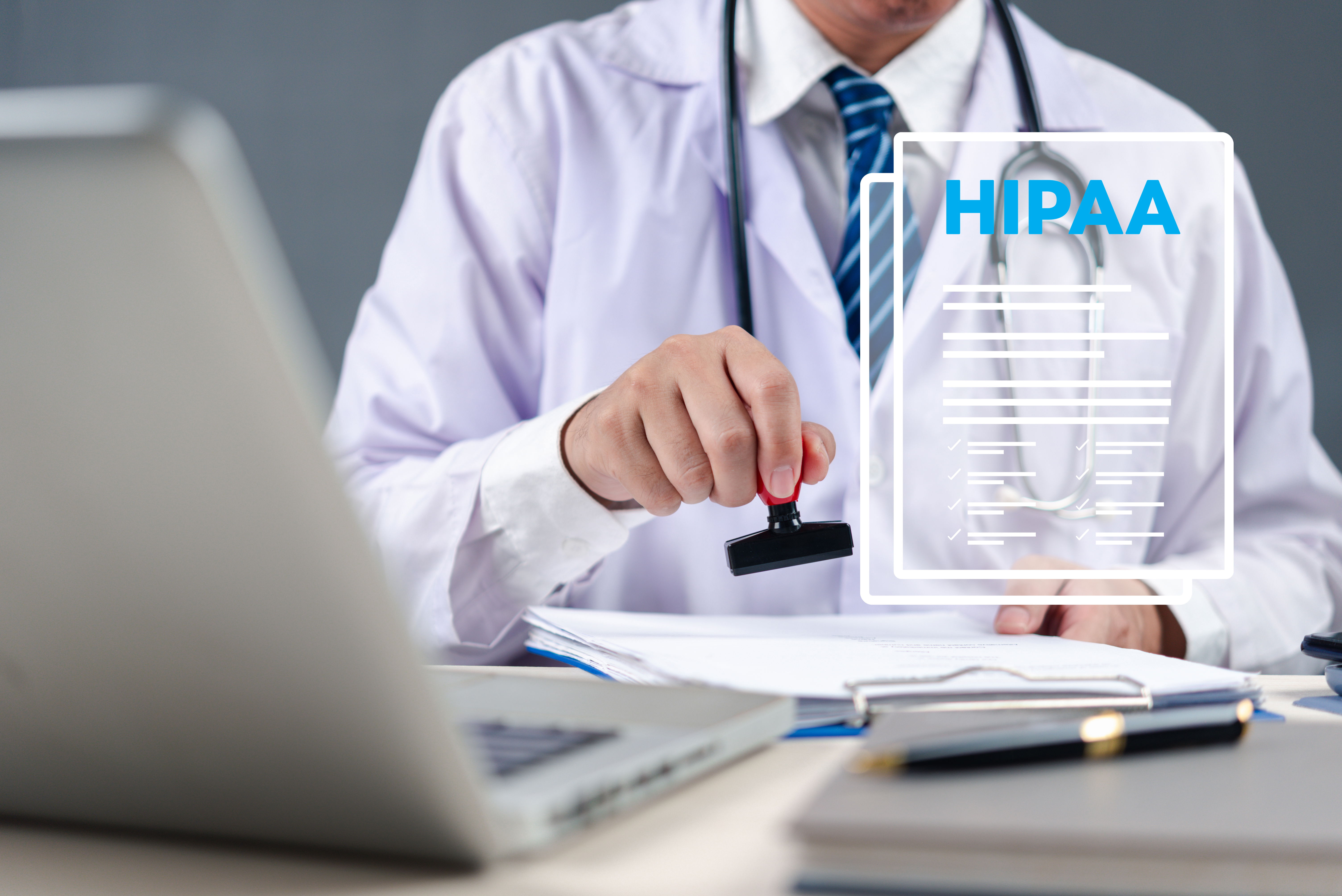HIPAA-Compliant Medical Billing: Why It Matters
Protecting Patients and Your Practice
In today’s healthcare environment, medical billing isn’t just about submitting claims and collecting payments. It’s about protecting sensitive patient data while ensuring providers get paid efficiently. With cyberattacks, data breaches, and ever-changing federal regulations, the stakes have never been higher.
That’s why more healthcare providers are turning to HIPAA-compliant medical billing services. These solutions not only safeguard patient information but also improve revenue cycle efficiency. For providers in California and across the U.S., outsourcing to a trusted partner like Bridge Billing Services ensures peace of mind, compliance, and stronger financial outcomes.
What Is HIPAA?
HIPAA stands for the Health Insurance Portability and Accountability Act of 1996. It’s a U.S. federal law designed to:
- Protect Patient Privacy – It sets strict rules for how healthcare providers, insurers, and their partners handle protected health information (PHI).
- Ensure Data Security – It requires safeguards like encryption, access controls, and secure transmission to prevent unauthorized access to patient records.
- Improve Portability – It helps patients maintain health insurance coverage when changing or losing jobs.
- Standardize Transactions – It introduced uniform electronic healthcare transactions to improve efficiency and reduce administrative costs.
Why HIPAA Compliance in Billing Matters
Protecting Patient Privacy
The Health Insurance Portability and Accountability Act (HIPAA) was designed to secure sensitive patient health information (PHI). Billing involves transmitting and storing large amounts of PHI, from diagnoses to insurance details. Non-compliance can result in hefty fines, reputational damage, and loss of patient trust.
- Tip: Regularly review your billing processes to ensure encryption, access controls, and secure transmission of patient data.
Avoiding Costly Penalties
HIPAA violations can cost providers anywhere from $100 to $50,000 per violation, with annual maximums in the millions. Many providers unknowingly take risks when relying on outdated systems or inadequately trained staff.
- Partnering with a HIPAA-compliant medical billing company near me ensures ongoing compliance monitoring and reduces legal risks.

The Advantages of Outsourced HIPAA-Compliant Medical Billing
1. Reduced Administrative Burden
Managing billing in-house requires constant training, technology investments, and compliance updates. Outsourcing to California medical billing services like Bridge reduces the load, allowing your staff to focus on patient care.
- Tip: Compare in-house costs (salaries, software, compliance training) with outsourcing fees to see potential savings.
2. Improved Revenue Cycle Performance
HIPAA compliance doesn’t just protect data; it also ensures accuracy. Secure systems minimize claim errors, denials, and delays. Bridge Billing Services leverages advanced technology to maintain a high first-pass claim acceptance rate, improving cash flow.
- Tip: Ask your billing partner about their denial management process and average turnaround time.
3. Enhanced Patient Trust
Patients want to know that their personal and financial data is safe. Providers who emphasize HIPAA compliance signal professionalism and responsibility, strengthening patient loyalty.
- Include HIPAA compliance messaging in your practice’s communication to reassure patients of their data security.
4. Scalability and Flexibility
Growing practices need billing systems that adapt quickly. Outsourced medical billing California providers offer scalable services that adjust as your patient base expands or specialties change.
- Tip: Choose a billing partner like Bridge with expertise across multiple specialties, from urgent care to mental health.
How to Choose the Right HIPAA-Compliant Billing Partner
Verify Compliance Standards
Ask billing companies how they encrypt data, manage user access, and monitor compliance. Look for SOC 2 certification or similar audits.
Review Technology and Integration
Ensure the company integrates with your EHR system, Epic, Kareo, NextGen, or others, to maintain seamless workflows.
Demand Transparency and Reporting
A good billing partner provides real-time dashboards and audit-ready reports. Bridge, for example, offers providers full visibility into claim status and collections.
Check for Specialty-Specific Expertise
Not all providers have the same billing needs. Look for a partner experienced in your specialty to reduce errors and improve claim accuracy.
Tips for Staying HIPAA-Compliant in Billing
- Conduct Regular Audits: Review billing practices and documentation at least annually.
- Train Staff Continuously: HIPAA rules evolve, ensuring staff receive ongoing compliance training.
- Encrypt All PHI: Data must be encrypted both in transit and at rest.
- Restrict Access: Limit PHI access to only those directly involved in billing.
- Use Secure Communication Tools: Avoid email for PHI transmission; use secure portals instead.
HIPAA Essentials Every Provider Should Know
1. Protect Patient Data (PHI)
- Encrypt all patient records in storage and during transmission.
- Never share PHI through unsecured email or messaging.
2. Control Access
- Limit access to PHI only to staff who need it.
- Use role-based permissions and unique login credentials.
3. Train Your Staff
- Provide ongoing HIPAA training at least once a year.
- Update training whenever regulations change.
4. Maintain Audit Trails
- Keep logs of who accessed patient data and when.
- Regularly review for suspicious activity.
5. Secure Technology & Vendors
- Use HIPAA-compliant EHR and billing systems.
- Ensure vendors (like billing companies) sign a Business Associate Agreement (BAA).
Bridge Billing Services: Your HIPAA-Compliant Partner
For U.S. healthcare providers, HIPAA compliance in billing is non-negotiable. It protects patients, shields providers from penalties, and supports efficient revenue cycles.
Bridge Billing Services is recognized as one of the best medical billing services in California and nationwide, offering:
- HIPAA-compliant billing across multiple specialties
- Seamless integration with major EHR systems
- Transparent reporting and denial management
- Professional billing solutions that scale with your practice
Protect your patients and your practice. Contact Bridge Billing Services today to learn how our California medical billing services can simplify compliance, improve revenue, and give you more time for patient care.
FAQs
1. What does HIPAA compliance mean in medical billing?
It ensures patient data is secure through encryption, access controls, and compliant workflows.
2. Why is HIPAA-compliant medical billing important for providers?
It protects patient privacy, avoids legal penalties, and builds trust.
3. Are outsourced billing services HIPAA-compliant?
Reputable companies like Bridge Billing Services follow strict HIPAA guidelines.
4. Can outsourcing reduce billing errors?
Yes, compliance-driven processes reduce errors, denials, and delays.
5. How does HIPAA compliance affect revenue cycle management?
Secure, accurate billing improves claim acceptance and speeds up collections.
6. Is HIPAA compliance required for small practices?
Yes, all healthcare providers handling PHI must comply with HIPAA.
7. What risks come with non-compliant billing?
Providers face fines, legal action, reputational damage, and lost patient trust.
8. Can HIPAA-compliant billing integrate with my EHR?
Yes, Bridge Billing Services integrates with systems like Epic, NextGen, and Kareo.
9. How does outsourcing save money for providers?
It reduces staff costs, improves collections, and prevents compliance penalties.
10. Why choose Bridge Billing Services for HIPAA-compliant billing?
Bridge offers trusted, scalable, and HIPAA-compliant medical billing services for providers across California and the U.S.
